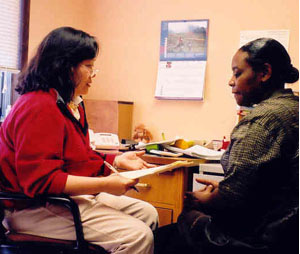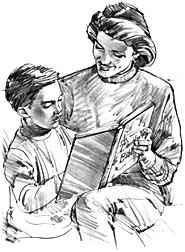Family Doesn’t Come Easily
Proverbs 17:17 NRSV
A friend loves at all times,
and kinsfolk are born to share adversity.

These days everything is throw-away. We love our fast food disposable society. Our cars break down; we buy new ones. Our homes need remodeling; we buy bigger ones. Our relationships sour; we find new “families.” We’ve lost an important sense of investment in life. Rather than invest, we throw out. And we fail to learn many important lessons when we live like this. We also may find ourselves on the short end of the stick when adversity strikes because we won’t have established the kind of relationships and skills that are necessary to persevere through the hard times.
Family Doesn’t Come Easily Read More »


 obedient, but when we are not humble — when we are arrogant and self-seeking — we are living in strife with those around us and are in sin. In fact, it is impossible to please God unless we are humble:
obedient, but when we are not humble — when we are arrogant and self-seeking — we are living in strife with those around us and are in sin. In fact, it is impossible to please God unless we are humble: 





 to survive in a home devoid of healthy parental love, limits, and consistency, they must develop “survival skills” very early in life. In a chaotic, dysfunctional family, the lack of external control through consistent loving disciple results in an inability to develop internal discipline and self control. They learn not to depend on their parents to meet their needs – instead, it is all up to themselves. And, because they can’t trust their own parents, they become generally suspicious and mistrustful of all human beings. Yet, they are defenseless against the projection of blame and often feel responsible for parents’ addiction. They become “little adults” that feel compelled to accept responsibilities well beyond their years.
to survive in a home devoid of healthy parental love, limits, and consistency, they must develop “survival skills” very early in life. In a chaotic, dysfunctional family, the lack of external control through consistent loving disciple results in an inability to develop internal discipline and self control. They learn not to depend on their parents to meet their needs – instead, it is all up to themselves. And, because they can’t trust their own parents, they become generally suspicious and mistrustful of all human beings. Yet, they are defenseless against the projection of blame and often feel responsible for parents’ addiction. They become “little adults” that feel compelled to accept responsibilities well beyond their years.